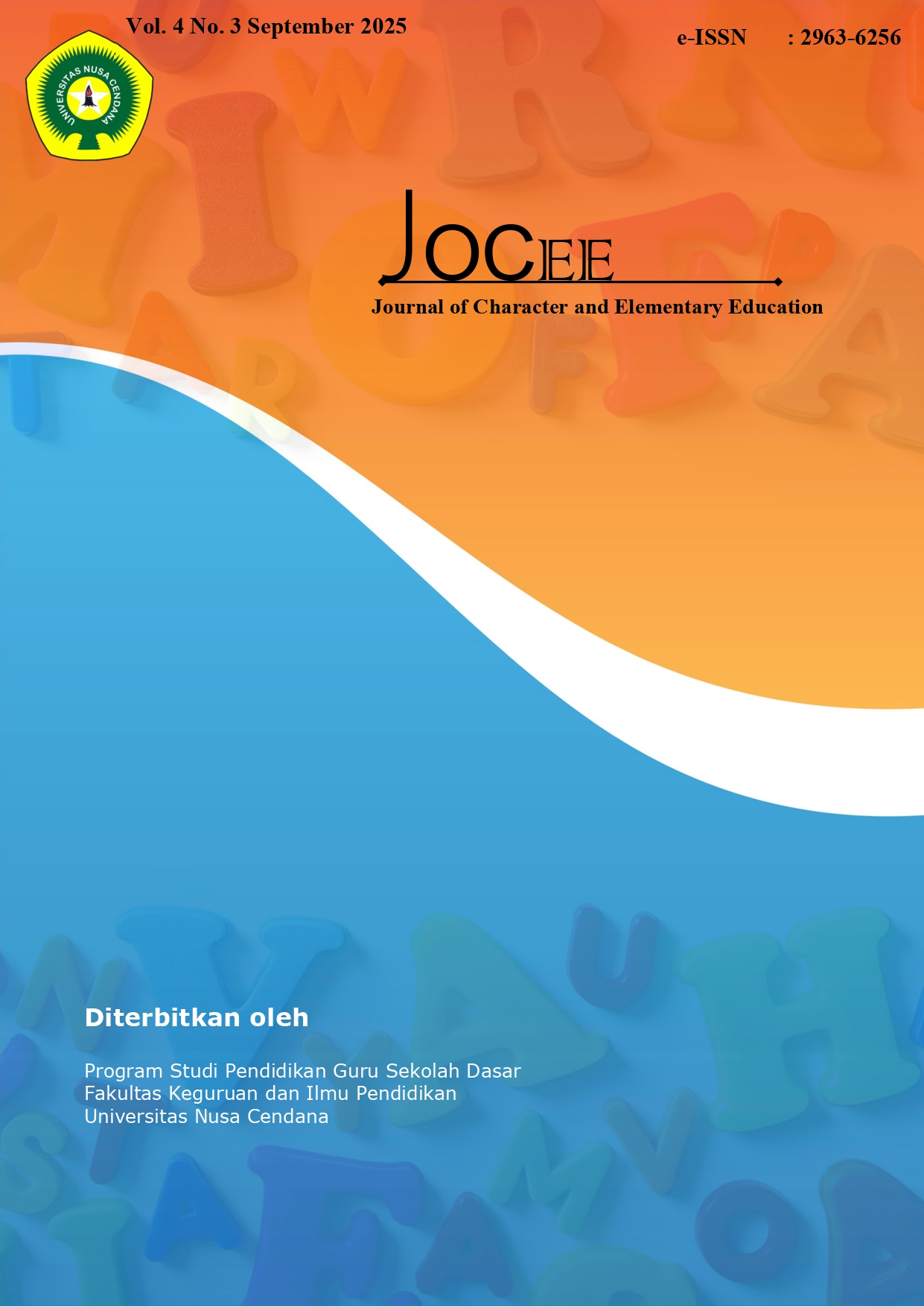Kontribusi Pendidikan Agama Islam dalam Edukasi Moral dan Etika Anak Usia Sekolah Dasar
Abstract
Islamic Religious Education (PAI) plays a strategic role in the formation of moral and ethical character of elementary school children. Amidst the challenges of globalization and the increasingly rapid flow of digital culture, PAI becomes an important foundation in forming a child's personality that is religious, ethical, and has noble character. This literature study aims to examine the contribution of PAI in instilling moral and ethical values through a holistic and contextual learning approach. This article reviews various literature from relevant national and international journals, published in the last five years. The results of the study show that PAI material integrated with reflective activities, habituation, and teacher role models are able to foster ethical awareness, a sense of social responsibility, and children's ability to distinguish between good and bad behavior from an early age. Meaningful PAI learning not only covers cognitive aspects, but also touches on the affective and psychomotor domains of children. This finding strengthens the urgency of strengthening religious education that is not merely doctrinal, but transformative and applicable in students' daily lives. Therefore, it is necessary to strengthen the curriculum design, pedagogical competence of PAI teachers, and synergy between schools and families in forming a generation with noble character.
 Sri Marlia Puteri(1*)
Sri Marlia Puteri(1*)






